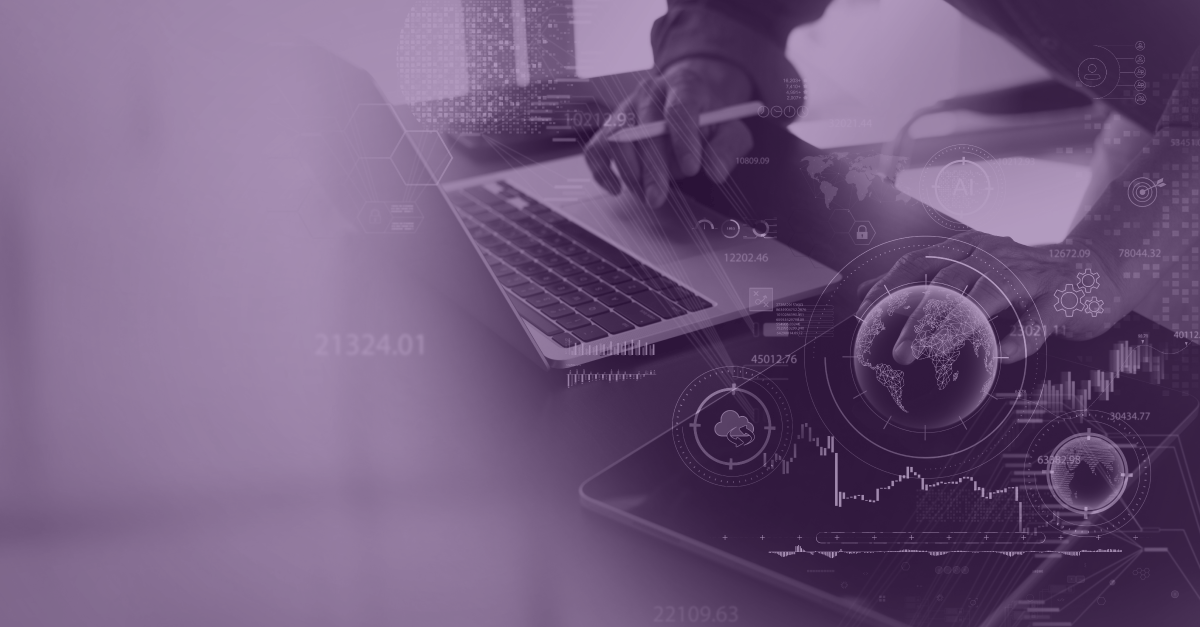AI Myth vs. Reality: Artificial Intelligence Will Take Over Human Jobs
November 29th 2022

Today’s digital transformation has already begun to have an impact on the job market, but this leads to the AI myth and people questioning whether artificial intelligence will make human jobs redundant.
Artificial intelligence is an emerging technology with the potential to transform businesses and the world. The AI market is set to grow from $19 billion in 2018 to $70 billion by 2024, driven by increased adoption of AI-driven devices, software, and services.
But with great growth potential comes the risk of overexposure and the AI myth that artificial intelligence will take over human jobs. The branch of computer science has been described as both a job-stealing automaton and a savior for humanity that will solve all our problems.
These fears are not without merit —AI is making inroads into various fields. But is this AI myth true? Do we have anything to worry about? Not really. AI is going to replace certain tasks performed by humans, but it won’t replace humans entirely. It’s going to help humans and businesses become more productive and even more creative. Let’s take a closer look.
Human jobs in the age of AI
The AI myth that human jobs will be taken over in the future, is a hot topic as we see the impressive rise of technology. From truck drivers and grocery stockers that will be put out of work by self-driving cars and trucks, to fast food workers whose robotic counterparts are now being developed in China.
Of course, it’s easy to see why the caricature of AI that Hollywood presents injects this fear, but this is far from reality. AI isn’t going to make human jobs redundant, instead, it will transform the way they are carried out. Throughout history, we have seen many eras of change in employment. For example, there was a significant shift from agricultural work to factories during the Industrial Revolution. Or even over the past few years where we’ve moved from offices to remote working and the ability to work as part of international teams with the click of a button.
AI algorithms are indeed designed to automate time-consuming manual tasks. But this does not mean that humans aren’t needed. AI aims to work in unison with humans. This means that it will change the type of work we do. By learning how to collaborate with machines, we’ll be able to increase our productivity and enhance our quality of work.
How AI will affect businesses
If we zoom into how AI will impact businesses, we’ll see a much more nuanced picture than the AI myth suggests. AI will lead to some job losses, but it will also create new job opportunities that we can’t even imagine. One of the major impacts is that it will provide humans with useful insights so that they can work smarter. Although automation means humans will no longer be needed for certain tasks, it doesn’t mean that they won’t be needed in the workforce.
AI will augment human capabilities to make people more dynamic than ever before. The human expertise from carrying out manual tasks will be used to train employees on how to use machines and provide a deeper understanding of how to improve machines. It will open up new areas of specialization so that people can concentrate on what they do best and collaborate with machines to perform their tasks more efficiently.
A few ways in which AI will innovate, augment, and enhance businesses include:
- Tracking employee performance
- Hiring new talent
- Reducing repetitive work
- Improving data security
- Translating complex data into digestible insights to support decision-making
- AI-based systems such as self-driving vehicles, healthcare devices, virtual agents, chatbots, etc.
AI will create new opportunities
A recent study estimates that AI will take 1.8 million jobs but will create 2.3 million jobs by 2030. Just a few of the sectors that will see new job opportunities include:
Healthcare:
With a shortage of doctors and nurses, AI-driven technologies such as AI-powered diagnostic tools, monitoring devices, enhanced medical images(https://dezzai.com/en/medical-image/), and virtual assistants will help fill the gap. As a result, this will lower costs. Therefore, humans aren’t replaced, but the pressure is eased on current workers so that they can focus on patients.
Transportation and logistics:
AI-powered autonomous vehicles and logistics robots will drive the growth of the transportation and logistics sector. It will improve operational efficiency and enable better asset utilization. AI can also help logistics providers to optimize route planning and provide real-time updates.
Retail:
AI will enable retailers to personalize the shopping experience, optimize inventory management, and provide customers with tailored recommendations. Therefore, AI will provide insight, but humans will be needed to work on specialized tasks by utilizing this detailed information to create even better products and content for consumers.
Financial services:
AI will transform the financial services industry by helping providers to better serve their customers. It will also enable organizations to manage risk, process payments, and perform compliance checks more efficiently. This means that, while AI works on the administrative side of organizing data, humans will be able to concentrate on relationships with their clients and solving their needs.
Conclusion
In the age of AI, business leaders should focus more on how humans can work better with machines than on how machines can replace humans. AI will open up new areas of specialization and create new job opportunities that don’t even exist today so that businesses become more efficient and effective. Ultimately, AI makes room for a large space of opportunity that individuals can explore, as well as enhanced decision-making and potential for businesses.
Check out more myths that we’ve debunked over on our blog.
Ready to see what we can do for you?
In the right hands, artificial intelligence can take human performance to a hitherto unimaginable level. Are you ready for evolution?




